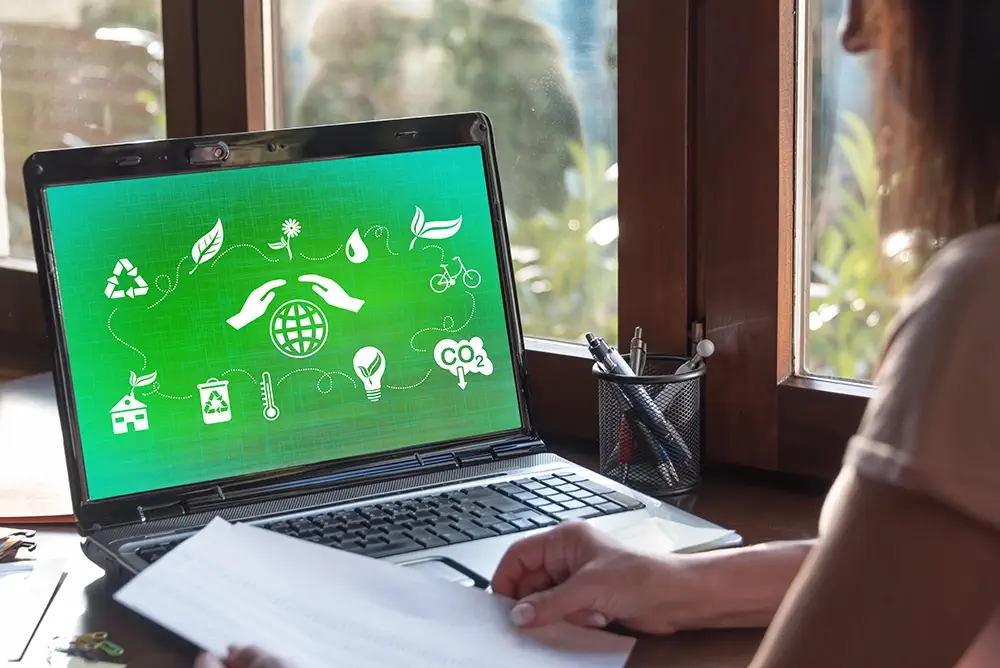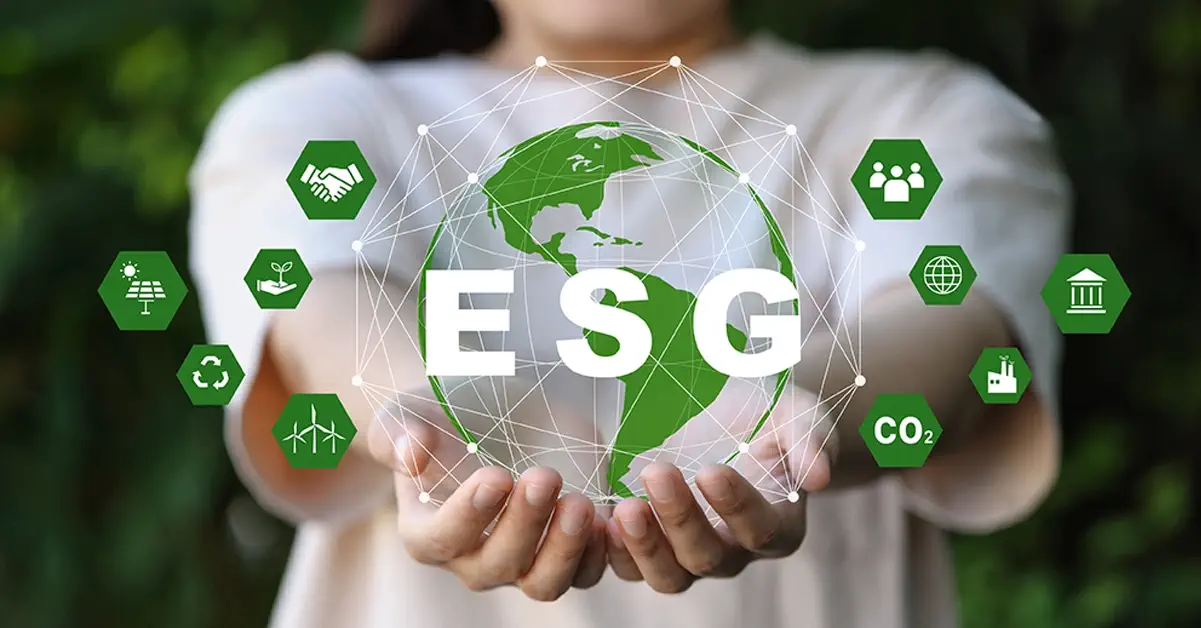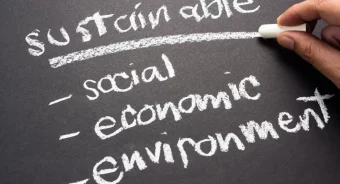In recent years, the link between events and sustainability has become a crucial consideration for organisers worldwide. As concerns about climate change and environmental degradation grow, the event industry faces increasing pressure to adopt greener practices.
Events, whether large conferences, festivals, or corporate meetings, have traditionally been resource-intensive—generating significant waste, consuming large amounts of energy, and encouraging travel that contributes to carbon emissions. However, by embracing sustainability in meetings and events, organisers can dramatically reduce their environmental footprint while still delivering impactful and engaging experiences.
Understanding why events and sustainability go hand in hand is essential for any event professional looking to stay relevant and responsible in today’s eco-conscious world. Attendees increasingly expect green credentials and will favour events that demonstrate a genuine commitment to sustainability. Moreover, many businesses and organisations now consider sustainable event management a reflection of their corporate values, making green event planning not only environmentally smart but also commercially strategic.
The Growing Importance of Sustainability in Event Management
Sustainability in the event sector is no longer an optional ‘nice to have’ but a necessary aspect of modern event management and sustainability planning. The environmental impact of events can be extensive, including energy consumption, waste generation, and emissions related to transportation. But beyond the environmental benefits, adopting sustainable practices can also result in cost savings, improved attendee satisfaction, and stronger community relationships.
By embedding events and sustainability into event planning and delivery, organisers signal their awareness of global challenges and their commitment to addressing them. This can enhance an event’s reputation and attract sponsors and partners who prioritise environmental responsibility. Furthermore, sustainable events often promote innovation and creativity, encouraging teams to rethink traditional practices and adopt fresh, eco-friendly solutions.

How to Plan and Deliver Environmentally Sustainable Events: Practical Steps
For those wondering how to plan and deliver environmentally sustainable events, the process can seem daunting at first. But with a clear plan and achievable goals, it becomes manageable and rewarding. Here are some practical strategies to help you get started:
1. Conduct a Sustainability Audit Early
Start by assessing the potential environmental impacts of your event. An events and sustainability audit helps identify areas where you can reduce waste, energy use, and carbon emissions. This early analysis will guide your decisions on venue selection, catering, travel, and materials.
2. Choose a Venue Committed to Green Practices
Opting for a venue that prioritises sustainability is one of the most effective ways to support your events and sustainability goals. Look for venues with certifications like ISO 20121 or those recognised for energy efficiency, waste reduction, and water conservation. Additionally, venues that provide good public transport access or bike parking encourage sustainable travel among attendees.
3. Minimise Waste and Promote Circularity
Waste reduction is a key pillar of sustainability in meetings and events. Avoid single-use plastics by providing alternatives such as reusable cups, plates, and cutlery. Work with suppliers who offer biodegradable or compostable options. Setting up clear recycling and composting stations throughout the venue also encourages responsible waste disposal.
Digital alternatives to printed materials are increasingly important. Instead of handing out paper programmes or flyers, use mobile apps or QR codes to share information. Not only does this reduce paper waste, but it also enhances the attendee experience by providing easy access to real-time updates.
Instead of printing schedules or attendee lists, opt for a digital solution. An event registration and ticketing software like Eventscase helps you digitise event communications, manage guest data, and promote sustainability by reducing paper use and streamlining logistics.
There are various event management software solutions, like Eventscase, that can help you with events and sustainability initiatives.

4. Sustainable Catering Choices
Food is often an overlooked source of environmental impact at events. To reduce this, choose catering providers who prioritise local, seasonal, and organic produce. Minimising meat consumption by offering more plant-based options can significantly lower your event’s carbon footprint. Additionally, plan portions carefully to reduce food waste, and arrange for any leftovers to be donated or composted.
5. Embrace Energy Efficiency and Renewable Energy
Events typically consume large amounts of electricity. To address this, use energy-efficient lighting like LEDs and low-energy AV equipment. When possible, source renewable energy directly from the venue or via green energy providers. Incorporating solar chargers or using hybrid power systems can also demonstrate your commitment to reducing fossil fuel dependence.
6. Promote Sustainable Travel and Accommodation
Travel emissions often account for the largest share of an event’s environmental impact. Encourage attendees to use public transport, cycle, or carpool by providing detailed transport information and incentives. For multi-day events, collaborate with local hotels that have sustainability policies in place, encouraging guests to participate in energy and water-saving programmes.
7. Engage and Educate Your Attendees
Events and sustainability is a shared responsibility. Engage your attendees by communicating your green initiatives clearly before and during the event. Use signage, announcements, and workshops to educate them on how they can contribute—whether it’s using recycling bins correctly, choosing sustainable transport options, or conserving energy.
8. Measure, Report, and Improve
After the event, review your sustainability outcomes. Collect data on waste volumes, energy consumption, and carbon emissions. Sharing this information transparently with stakeholders builds trust and sets a baseline for continuous improvement. Learning from each event enables you to refine your strategies and deliver even greener events in the future.
The Long-Term Benefits of Events and Sustainability
The benefits of integrating sustainability into your event planning extend well beyond environmental impact. Green events can help reduce costs by lowering energy bills and minimising waste disposal fees. They often attract attendees who value responsible business practices, increasing loyalty and satisfaction. Furthermore, sustainable events can open doors to new partnerships and sponsorship opportunities aligned with corporate social responsibility goals.
By leading the way in events and sustainability, organisations position themselves as forward-thinking and socially responsible—qualities that resonate strongly with today’s consumers and employees alike.

In Conclusion
The relationship between events and sustainability is not just a trend but a vital evolution in how we create, manage, and experience events. By adopting thoughtful, sustainable practices, event organisers can significantly reduce their environmental impact while enhancing the overall quality and appeal of their events.
From choosing eco-friendly venues and minimising waste to encouraging sustainable travel and measuring outcomes, there are many actionable steps to take on the journey to greener events. As the demand for responsible event management grows, integrating sustainability into your planning process will ensure your events remain relevant, impactful, and respectful of the planet.
Further Reading on Sustainable Events 👉 New Whitepaper: Sustainability in the Events Industry.
If you would like to subscribe to our newsletter to get live updates on everything related to our platform – news, blogs, events, announcements and much more, please, register here.






